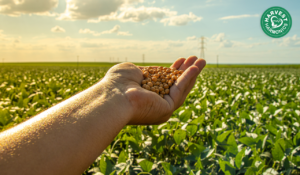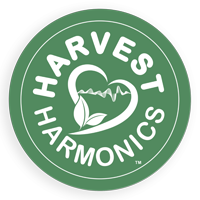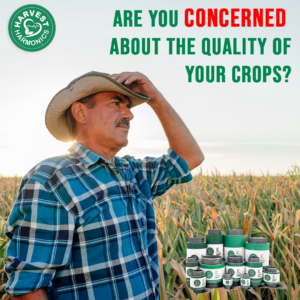Soil Health

Dear Farmers and Agriculture Enthusiasts,
Welcome to our Bi-Weekly newsletter! In this edition, we will be discussing the crucial topic of soil health as the foundation for sustainable agriculture. As farmers, you are well aware that healthy soil is the backbone of successful and resilient farming practices. By prioritizing soil health, we can ensure the long-term productivity of our farms while minimizing negative environmental impacts. So, let’s delve into why soil health is so essential and explore ways to enhance it through sustainable practices.
Why is soil health important?
Soil health is the fundamental building block of sustainable agriculture. It refers to the overall well-being and functionality of the soil ecosystem. Healthy soil provides essential nutrients, retains water, promotes beneficial microorganisms, and supports plant growth. It acts as a natural reservoir for carbon sequestration, mitigating climate change impacts. When soil health is compromised, farmers face challenges such as reduced crop yields, increased pest and disease pressure, and soil erosion.
Enhancing soil health through sustainable practices:
Organic Matter: Boosting organic matter content is crucial for soil health. It improves soil structure, water-holding capacity, and nutrient availability. Incorporating practices like cover cropping and composting helps increase organic matter, replenishing essential nutrients and promoting a diverse soil microbiome.
Crop Rotation and Diversification: Implementing crop rotation and diversification breaks pest and disease cycles, reduces soil-borne pathogens, and improves overall soil health. It optimizes nutrient utilization, prevents soil erosion, and encourages the presence of beneficial insects and organisms that aid in natural pest control.
Conservation Tillage: Traditional tillage practices can degrade soil health. Conservation tillage, such as minimum or no-till farming, preserves soil structure and reduces soil disturbance. It protects against erosion, improves water infiltration, and promotes the growth of beneficial soil microorganisms.
Biological Pest Control: Embracing biological pest control methods reduces reliance on chemical pesticides, which can harm soil health and the environment. By creating a balanced ecosystem that attracts beneficial insects and organisms, farmers can naturally manage pests while preserving soil health.
Integrated Pest Management (IPM): IPM combines various pest control strategies, such as monitoring pests, using traps, employing physical barriers, and practicing crop rotation. By minimizing pesticide use and focusing on holistic pest management, farmers can maintain soil health and protect beneficial organisms.
Biophysical Growth Strategies: Biophysics, the study of the physics underlying biological systems, offers innovative approaches to enhancing soil health. By retuning the cellular functions of plants to their natural frequencies, biophysical growth strategies increase plant efficiency in utilizing nutrients and water. This approach feeds soil microorganisms, replenishing the soil and supporting regenerative farming methods.
The road to sustainable agriculture:
As we strive for sustainable agriculture, prioritizing soil health is non-negotiable.
By implementing practices that enhance soil health, we create a thriving ecosystem that supports healthy crop growth, reduces reliance on synthetic inputs, and protects the environment. Additionally, sustainable farming practices contribute to long-term soil fertility and resilience, ensuring the productivity and viability of our farms for future generations.
Remember, it’s a journey that requires continuous learning, adaptation, and collaboration.
Stay tuned for future newsletters, where we will dive deeper into sustainable farming practices, share success stories, and provide practical tips to help you on your journey.

